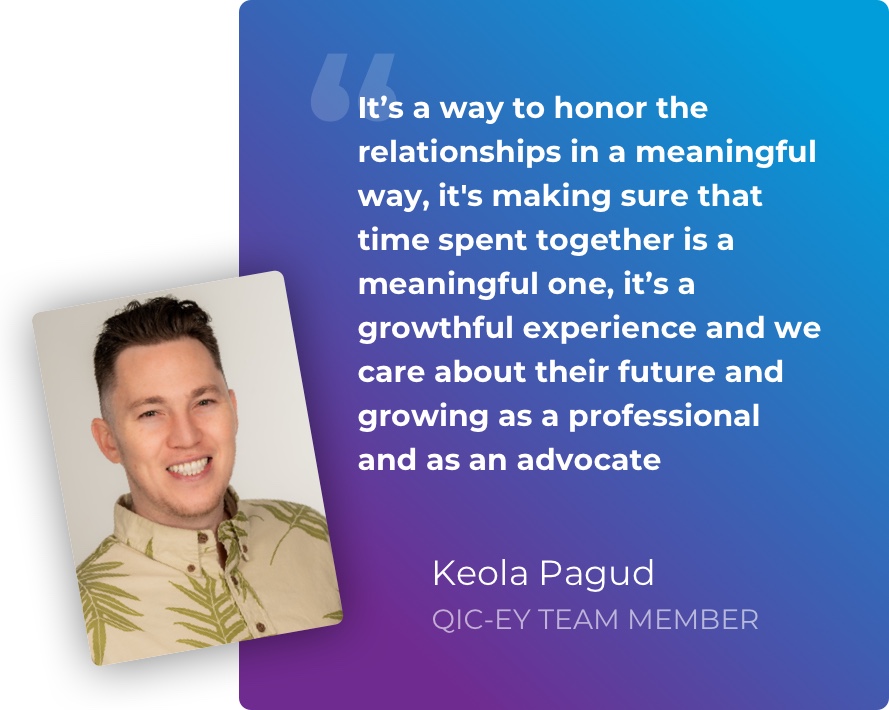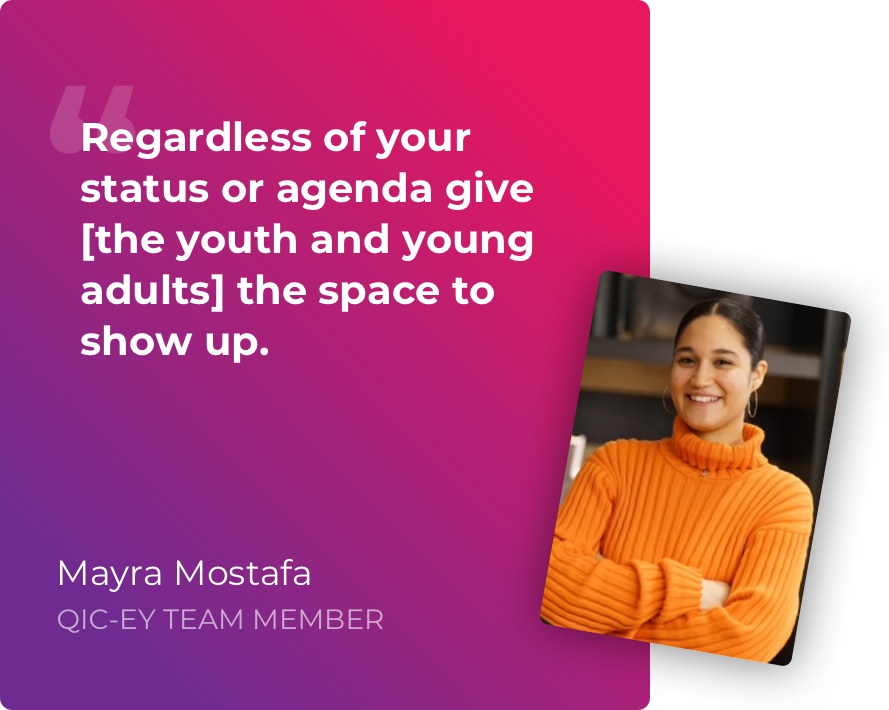Professionals driving transformation of the child welfare system need to give thoughtful consideration to approaches for engaging authentically with youth and young adults who have lived expertise to include their valuable input in transformation efforts.
Helpful Links
Pilot Sites
QIC-EY Products
Contact Us
Privacy Policy
Cookies Policy
Join the Mailing List
Join our mailing list to receive quarterly updates on the QIC-EY including products being released, training opportunities and other information to help inform your work on youth engagement.

This website is supported by the Administration for Children & Families (ACF) of the United States (U.S.) Department of Health & Human Services (HHS) as part of a financial assistance award totaling $5,000,000 million with 100 percent funded by ACF/HHS. The contents are those of the author(s) and do not necessarily represent the official views of, nor an endorsement by, ACF/HHS or the U.S. Government. For more information, please visit the ACF website, Administrative and National Policy Requirements, at https://www.acf.hhs.gov/administrative-and-national-policy-requirements.


